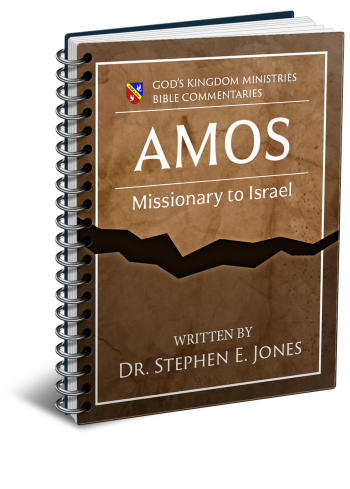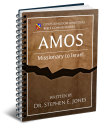Latest Posts
View the latest posts in an easy-to-read list format, with filtering options.

Amos was a missionary from Judah to Israel, giving them a final warning to repent before divine judgment was to destroy the nation. They refused, and two years later the nation was struck by a massive earthquake that destroyed their defenses and allowed the Assyrians to conquer them easily.
Category - Bible Commentaries

Amos 1:11, 12 says,
11 Thus says the Lord, “For three transgressions of Edom and for four I will not revoke its punishment, because he pursued his brother with the sword, while he stifled his compassion; his anger also tore continually, and he maintained his fury forever. 12 So I will send fire upon Teman, and it will consume the citadels of Bozrah.”
Edom (“red”) was Esau’s nickname (Gen. 36:1). The feud between Jacob and Esau began with the dispute over the birthright. Both brothers were at fault, for both of them had carnal minds and methods. Esau never overcame his carnal mind, but Jacob did.
In the end Jacob paid restitution for his sin against his brother after he lied to obtain the birthright. Yet the feud never ended, because Esau did not have a heart of forgiveness, nor did he ever accept the fact that God always intended for Jacob to have the birthright (Gen. 25:32).
The main problem was that Jacob obtained the birthright in an unlawful manner—by lying to his father in a clear case of identity theft (Gen. 27:21-24). That sin, of course, had to be judged before the birthright could truly be fulfilled in the earth. The long and sordid history of that judicial process is discussed fully in my book, The Struggle for the Birthright.
After Moses brought Israel out of Egypt, they spent 40 years in the wilderness. Then when the time approached for Israel to enter the land of Canaan, God told them to enter the land through the east side just north of the Dead Sea. But to get there, Israel had to pass through the land of Edom.
Israel sent messengers to ask for safe passage through Edom, but the Edomites responded harshly and sent troops to prevent their passage. We read in Numbers 20:18-21,
18 Edom, however, said to him, “You shall not pass through us, lest I come out with the sword against you.” 19 Again, the sons of Israel said to him, “We shall go by the highway, and if I and my livestock do drink any of your water, then I will pay its price. Let me only pass through on my feet, nothing else.” 20 But he said, “You shall not pass through.” And Edom came out against him with a heavy force, and with a strong hand. 21 Thus Edom refused to allow Israel to pass through his territory; so Israel turned away from him.
This was not a “brotherly” way to act.
Yet Israel was instructed in the law to treat Edomites as brothers. Deut. 23:7 says,
7 You shall not detest an Edomite, for he is your brother; you shall not detest an Egyptian, because you were an alien in his land.
This command to Israelites also applied to Edomites in their treatment of Israelites. All of God’s laws, including this one, are based upon the foundational principle of love. Further, the law is impartial in its judgments. Hence, the prophecy in Amos 1:11 condemns Edom for its perpetual hatred for Jacob. The solution, of course, is for Edomites to have a change of heart and to repent of their evil doings.
In other words, Edomites, like all nations, are required to be begotten by the Spirit of God, so that they can receive a new nature and receive a new identity in Christ. But as long as they identify themselves with their fleshly forefathers and maintain their fleshly claim upon the birthright, they will continue to slide toward judgment.